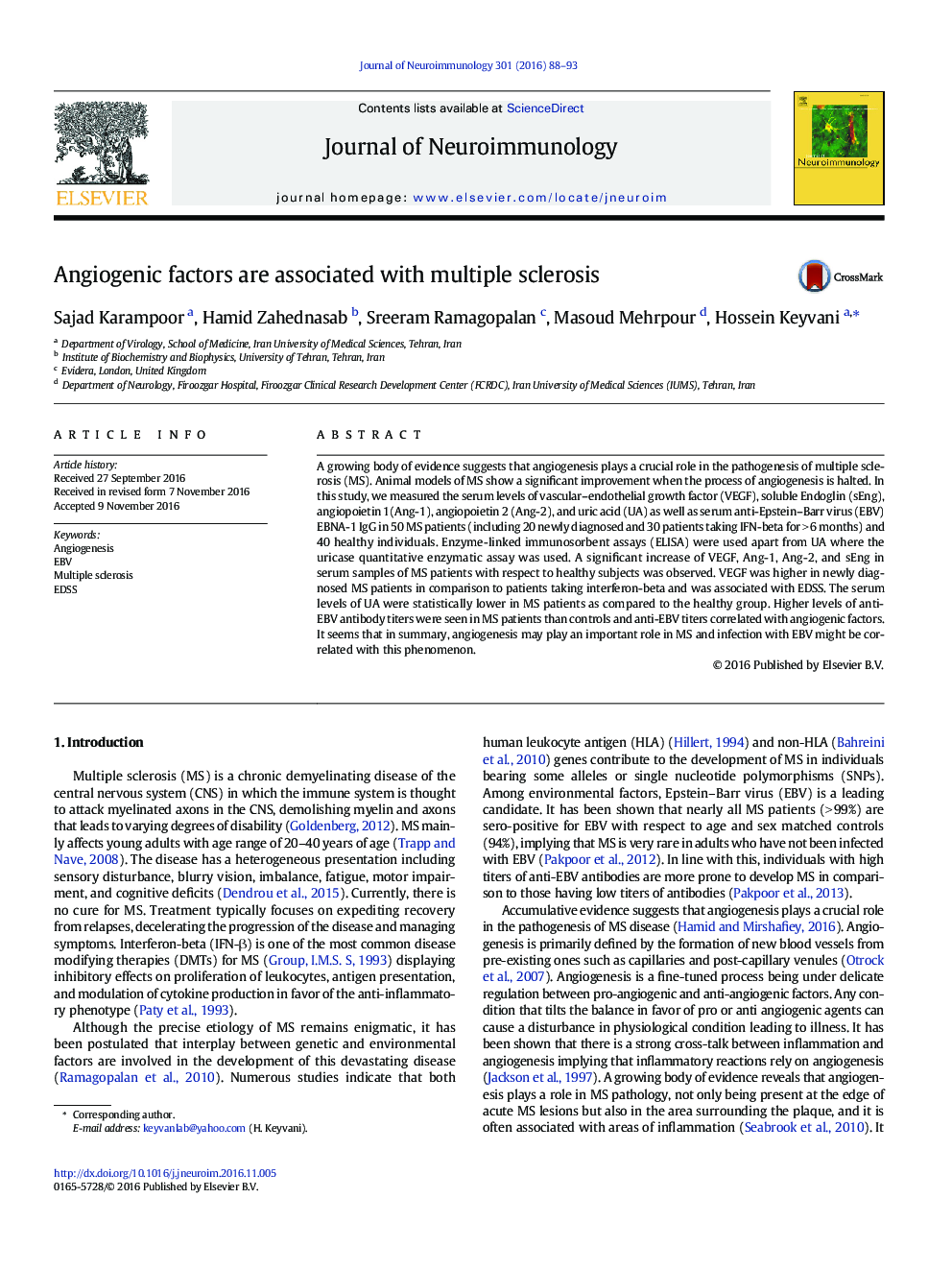| Article ID | Journal | Published Year | Pages | File Type |
|---|---|---|---|---|
| 5630241 | Journal of Neuroimmunology | 2016 | 6 Pages |
â¢VEGF is higher in new case MS than IFN-beta-treated MS patients and healthy individuals.â¢Ang-1 and Ang-2 were higher in serum of MS patients in comparison with healthy individuals.â¢The concentration of sEng is higher in MS patients in relation to healthy individuals.
A growing body of evidence suggests that angiogenesis plays a crucial role in the pathogenesis of multiple sclerosis (MS). Animal models of MS show a significant improvement when the process of angiogenesis is halted. In this study, we measured the serum levels of vascular-endothelial growth factor (VEGF), soluble Endoglin (sEng), angiopoietin 1(Ang-1), angiopoietin 2 (Ang-2), and uric acid (UA) as well as serum anti-Epstein-Barr virus (EBV) EBNA-1 IgG in 50 MS patients (including 20 newly diagnosed and 30 patients taking IFN-beta for >Â 6Â months) and 40 healthy individuals. Enzyme-linked immunosorbent assays (ELISA) were used apart from UA where the uricase quantitative enzymatic assay was used. A significant increase of VEGF, Ang-1, Ang-2, and sEng in serum samples of MS patients with respect to healthy subjects was observed. VEGF was higher in newly diagnosed MS patients in comparison to patients taking interferon-beta and was associated with EDSS. The serum levels of UA were statistically lower in MS patients as compared to the healthy group. Higher levels of anti-EBV antibody titers were seen in MS patients than controls and anti-EBV titers correlated with angiogenic factors. It seems that in summary, angiogenesis may play an important role in MS and infection with EBV might be correlated with this phenomenon.
